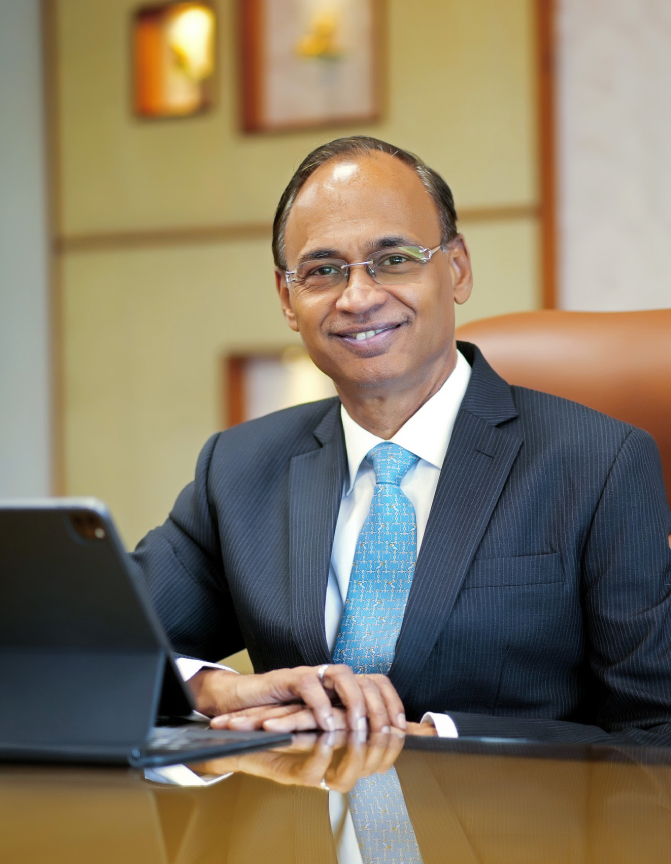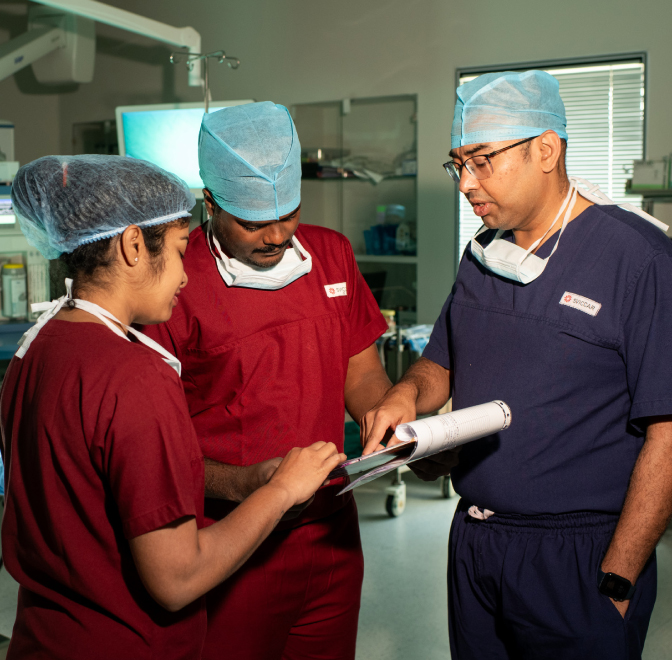
‘A good partner is a necessity’
Federal Bank has been providing stellar support to the Tata Cancer Care Foundation and the Assam Cancer Care Foundation, both founded by the Tata Trusts, to help economically disadvantaged patients suffering from cancer to cover the costs of diagnosis, treatment and much more. Managing director and chief executive KVS Manian talks to Labonita Ghosh about Federal Bank’s commitment to cancer care and about the partnership with the Tata Trusts.
How did Federal Bank’s association with the Tata Trusts come about?
The Tata Trusts had collaborated with us in 2023 as a knowledge partner for our initiative ‘Sanjeevani United Against Cancer’. Cancer, as a cause, is very important to the Bank, and it’s also close to my heart since I have suffered a personal loss from the disease.
We understand how difficult and expensive cancer treatment is, especially for those from economically disadvantaged sections of society. Awareness is equally important in India, where early and timely detection often doesn’t take place. We wanted a more holistic and comprehensive involvement, which is why we got going with patient support.
Patient support is a challenge in itself. Not only do you require a good partner to ensure optimum utilisation of funds, but there are hidden costs that are not claimable by patients through insurance or government schemes. We realised that if we focus on these things, the partnership would be more fruitful. After awareness and patient support, we are exploring the option of funding infrastructure of various kinds, whether it’s a cancer centre in regular hospitals or accommodation for caregivers.
One abiding memory I have is of seeing, many years ago, a lot of people on the footpaths outside the Tata Memorial Hospital in Mumbai. That’s why we would like to create a space for caregivers as well. More such ideas will emerge in the course of our partnership with the affiliates of the Trusts such as the Tata Cancer Care Foundation [TCCF] and the Assam Cancer Care Foundation [ACCF].

From awareness and advocacy to creating infrastructure, how did that transition happen? And is it easy to put funds where the outcomes are not immediately evident?
CSR [corporate social responsibility] has made a lot of companies think more about how to spend their mandated 2% of funding. For a bank like ours, whose profits are more than ₹4,000 crore in 2024-25, 2% is a substantial amount.
Earlier, we were more inclined to fund smaller projects. But the effort to spend money on multiple small projects is complicated, we have found, which is why we are now backing larger initiatives instead. I believe that for corporate entities the mandated CSR spend is an opportunity to look at large programmes that can have a more significant impact.
For a family threatened by the loss of a loved one due to cancer, a small amount can have a huge impact. But creating infrastructure could magnify that impact and make it more widespread. This was not a difficult transition for an organisation such as ours.
Many companies prefer to use CSR funds in their catchment area or in the areas where they operate. You have moved from working only in South India to Assam. What made you go beyond your comfort zone?
It’s not entirely true that we went out of our comfort zone; Federal Bank has a reasonable presence in the Northeast as well. I believe that once you decide to back a cause, you must go where the cause takes you. Having said that, it’s natural for us to work in territories where we are present because that’s where our customers are, where we know the market and the terrain, and can make an impact. Our 2% is not meant as a business expenditure; in that spirit, we do not want to be constrained by geography.

Federal Bank’s Hormis Memorial Foundation does a lot of work in climate change, sustainability and education. Why did you decide to support cancer, too?
Healthcare is a big commitment for us. It is there in the Foundation’s mandate and Covid sharpened our focus on health and wellbeing. Then, after Covid, when we started wondering about the next big area that could do with some funding, cancer was the obvious answer.
How has your experience of the partnership with the Tata Trusts affiliates TCCF & ACCF been?
When you embark on a journey of funding, it’s very important to have the right partner. By law, we are supposed to spend our CSR money in an auditable manner. But that is just one part; the other is about the genuineness of that spending, of it reaching the right people and real objectives being met. A good partner is a necessity to achieve these goals.
From our point of view, TCCF and ACCF are reliable and trusted names. It’s a pleasure being associated with the Trusts; you don’t have to worry about whether the money is being spent correctly. I have some personal experience with the Tata group as well, having worked with it for about eight years of my career.
Have there been any unexpected outcomes of this partnership?
When we decided on patient support, there was a lot of learning. It has helped us become more focused on what we would like to do. We understood what could be easily funded and what the hidden needs that require support are.
At the start, the most obvious idea is to provide funding for treatment. But the truth is that some aspects of cancer care are supported and covered by government or insurance schemes. The real need is somewhere else, in aspects that are not claimable. For instance, the blanket term ‘patient support’ entails many aspects that are not immediately evident.
Our funding has gone towards transport [enabling patients to access cancer care centres near and far] and accommodation for patients and their caregivers. Some of the money has gone into the nutrition needs of patients. These are not things that were obvious to us at the start. As the partnership evolved with the programme, we have learnt how to use the money more effectively and find the gaps where funding can make a difference.
Where do you see this partnership going?
The next stage, to my mind, is infrastructure. Federal Bank is in talks with some government hospitals to set up oncology centres on their premises, perhaps even provide infrastructure support for specific kinds of oncology. I feel we could do some work in this sphere with the Trusts as well.
Beyond compliance and the financial angle, what makes a CSR intervention successful?
The biggest challenge is to measure impact. One can carry out assessment studies but not all outcomes are clear and easy to measure. For example, with cancer care you don’t know how many lives you have been able to save. These are difficult facets to grapple with, which is why good partners and well-designed programmes are critical.
The effectiveness of a programme is vastly different from whether or not it is auditable. The true north for all of this is selecting the right partner, one who shares your values and commitment to the cause, and can also contribute with a well-designed programme.
When scaling a programme you’re involved in, how do you educate yourself to know the different directions you can go?
Necessity is the mother of invention. As our needs grow to deploy more CSR funds, our teams are also exploring more opportunities. Second, when working with partners like the Trusts, a lot of thoughts and ideas come from them, too, especially since they are already a part of the ecosystem. You then work on these ideas collaboratively.
Third, when it comes to our cancer programme, a lot of ideas are generated by patients and other stakeholders in the system. They give us insights into what more can be done and what is essential. You must keep all these channels open.
At Federal Bank, we now want to narrow our focus areas and spend more on those. Do fewer things, perhaps, but go deeper into them for more impactful outcomes. This will help us to become more focused and generate ideas about new initiatives to pursue.
A short-term impact is providing funds to a family that needs money on a day-to-day basis to treat its near and dear ones. But investing in infrastructure [that benefits a lot of cancer patients] can create a long-term impact. Increasingly, we’re thinking of doing fewer projects but going much deeper into them. As our budgets grow, so will our challenges.
In this context, one always needs a good partner, someone who can scale up when provided with funds and an enabling environment. Most on-ground partners are tied to the geographies they work in, so it’s harder to initiate country-wide programmes with them. Here again, the Tata Trusts are a perfect fit since they operate all over India.